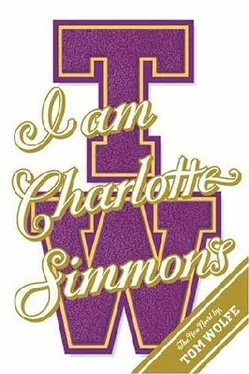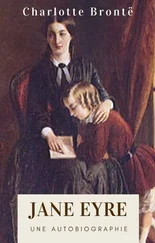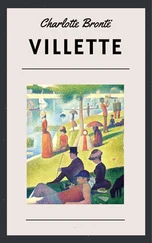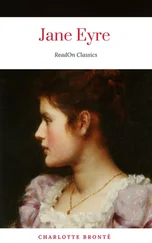34. The Ghost in the Machine
A month had passed, and by now Coach Buster Roth’s basketball team had won twenty-one games and lost none here on the verge of the NCAA national basketball tournament, nicknamed March Madness, which Dupont was highly favored to win again. All home games at the Buster Bowl had been sellouts for several years now, but the jockeying, conniving, favor-promising, favor-cashing in, the flattering, the pandering, the name-dropping, string-pulling, and sheer spending—scalpers were said to be getting a thousand dollars per ticket—to get into tonight’s game with the University of Connecticut had reached uproar proportions. Fights—not physical but via telephone, e-mail, fax, FedEx, and U.S. mail—had broken out among musical alumni for the privilege of playing in the Charlies’ Children’s Alumni Band, which performed courtside in a block of four rows of a section near one end of the court—Children, as in sons and daughters of the alma mater, Mother Dupont.
At this moment, a full hour before game time, these devoted sons and daughters, attired in mauve blazers with yellow piping—they happily paid for this raiment themselves—were playing “The Charlies’ Swing” with unequaled kinetic energy and brio, not to mention volume. The “Swing,” written by famous Dupont alumnus/composer Slim Adkins, had become a staple of jazz bands all over the world.
The two teams were yet to emerge from the dressing rooms for the warm-ups. At the moment the court was congested with entertainers—the cheerleaders shaking their fannies, the Chazzies dance troupe shaking their fannies, the gymnasts hurling their twirling girls into the air and catching them, and the Zulj Brothers—twin sophomores from Slovenia majoring in clonotic biology (the study of undifferentiated stem cells) who also happened to be jugglers—juggling alarming things such as serially lit cherry-bomb firecrackers. Even after almost a month of it, Charlotte was agog at this zany show that seemed to pop up from out of the floor to the über-exuberant accompaniment of the Charlies’ Children’s Alumni Band whenever the players were not on the floor. It was the closest thing to an authentic circus she had ever seen in her life.
To tell the truth—had she dared tell the truth—which she hadn’t and wouldn’t, not even to Jojo—Charlotte felt like part of the pregame show herself. Here she was, a freshman, eighteen years old, sitting directly behind the Dupont bench at mid-court. The only better seats in the arena were those reserved for the Cottontops (namely, the university’s most important donors, most of whom were old men with white hair), who sat in the courtside section immediately below. Their wives were called the Pineapples, because most of them had white hair dyed a pale pineapple blond. Many students grumbled about the Cottontops and the Pineapples and their seats, on the grounds that these prize vantage points should go to themselves, the real fans, as opposed to these golden-agers with money who merely wanted to be seen breathing the most precious air there was wherever their sense of privilege told them they ought to be.
Charlotte had no money at all, but she, like them, enjoyed the knowledge that her position was just about the best there was. That much any of her fellow students would realize, and they would wonder who this pretty girl was, if not already aware that she was Jojo Johanssen’s girlfriend, Charlotte Simmons. Once that had become known, the world had begun to turn rapidly for Charlotte. She now knew Buster Roth as “Coach,” and he knew her as “Char,” pronounced Shar, short for Charlotte, and just last week he had said to her, “You know, Char, you’re the best thing that ever happened to Jojo.” “Coach” seemed to credit her—seemed to…he had never said that in so many words—with Jojo’s sudden turnabout on the court. Over the past month he had become a new player, or perhaps come back as the Jojo of old. He was suddenly so hot at scoring, as well as rebounding, setting picks, and “altering the behavior” of other big men on defense, that he had won back his starting position—as opposed to starting home games as the token white boy replaced before the end of the first quarter by Vernon Congers. Charlotte still hadn’t the vaguest idea of what “setting picks” was. “Altering behavior,” one of Coach’s favorite phrases, seemed to refer to physical punishment. Charlotte never noticed Jojo pushing, elbowing, or whacking opponents with his forearms, but he was said to be devastatingly good at these things and at “sumo-tizing” them, which seemed to mean shoving and battering them around with the muscular bulk of his body. One thing she was able to see for herself was how high he was now jumping. Seeing somebody 250 pounds and almost seven feet tall launch himself to that altitude was amazing.
Not only Coach but also Jojo’s roommate, Mike, and his friend Charles seemed to realize that she was no ordinary girlfriend. This little slip of a girl from the mountains—Charlotte enjoyed imagining how they perceived her—was for Jojo, in addition to whatever else she might be, a mentor, a teacher, and a nanny. It was something—once more she put herself inside their heads—to see the extent to which the little girl had the giant whipped. As far as she herself saw it, Jojo regarded her as the catalyst of the new him—he seemed to enjoy using (and overusing) this word “catalyst”—the student-athlete who was actually a student and who had resolved to lead a life cleaner than that of the playa-athlete he used to be. Charlotte had laid down a few laws on that score herself, and Jojo, like many another convert in the early stages of devotion, clearly found a blissful blessedness in his new asceticism and the bliss of the born-again in obeying her law number one that said they could be boyfriend and girlfriend and go everywhere together but that he would have to win her affections in the fullness of time.
Seated on the aisle, as she was, Charlotte was aware of people descending and climbing up the stairs of this particular cliff of the Buster Bowl, but she had long since ceased focusing on them as individuals. They were simply there…until she became aware of a figure rather more smartly dressed than the general run of basketball fans—a blue-green tweed suit, a white shirt with a fine blue windowpane check, a black silk knit tie—
An inexplicable sinking feeling came over her—it was Mr. Starling, climbing up the stairs in her direction. It seemed so improbable. She couldn’t think of a less likely person to see at a basketball game. On the other hand, this was one of the few college basketball games she had ever been to, and she really had no idea what sort of people were or were not basketball fans. In the next instant Mr. Starling saw her, too. She knew he did, because their eyes locked and he compressed his lips in a grim manner and averted his eyes. Her heart sank—he couldn’t, he wouldn’t, do that to her—but then, still climbing the stairs, he looked at her again. As he drew close, he smiled. And she smiled, feeling that a…catastrophe…had just been averted. As Mr. Starling drew abreast of her in his climb, he looked at her imploring face in a tender way, as Charlotte saw it, and said, “Hello, Miss Simmons.”
“Mr. Starling! Hi!”
He slowed to almost a halt, still looking at her—
Oh, speak to me, I implore you!
—and then smiled again—in that way?—in that way?—Don’t worry, I hold nothing against you for squandering your gifts?—and resumed his climb up the cliff of the Buster Bowl.
Charlotte twisted about in her seat—No! I need to tell you everything that happened!—but she didn’t leap up from her seat, and she didn’t call out after him…for what was there left to tell him that he couldn’t have already easily surmised?
Читать дальше










